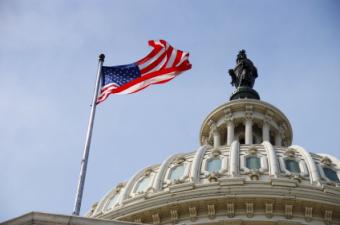With the latest bank failure tallying up numbers for 2011 at 64, lawmakers convened a field hearing in Georgia Tuesday to determine whether risk-wary authorities are to blame for folding institutions and federal rescues. Appearing as witnesses, several bank presidents complained of a stifling regulatory environment, which federal regulatory authorities, in turn, portrayed as needed and helpful in the wake of the financial crisis.
[IMAGE]Signaling the subcommittee mien, ""Rep. Spencer Bachus"":http://bachus.house.gov/ (R-Alabama), chairman of the ""House Financial Services Committee"":http://financialservices.house.gov/, said in a ""statement"":http://financialservices.house.gov/News/DocumentSingle.aspx?DocumentID=255544 that lawmakers ""cannot allow regulatory micromanagement of community banks to stifle prudent lending... Bank examiners must recognize the risks of over-regulation, and particularly avoid subjecting smaller financial institutions to undue regulatory burdens.""
In step with the committee chairman, ""Rep. Lynn Westmoreland"":http://westmoreland.house.gov/ (R-Georgia), likewise a vocal critic of federal regulation, called attention to the collapse of 67 banks around the state since 2009. According to the ""FDIC"":http://www.fdic.gov/, this year's 64 failures followed 157 from last year, which built on 140 failures over 2009, totaling 380 failures since 2008. Over 325 of the institutions that failed are community banks with less than $10 billion in total assets.
On the whole, bankers highlighted the distress brought about by a dented market for commercial real estate and faulted federal authorities for a heavy-handed approach to banking regulation.
Chuck Copeland, CEO of the ""First National Bank of Griffin"":https://www.fnb-griffinonline.com/home/home, colored the regulatory environment as one of ""mixed messages"" that he said included overly harsh examiners' reports, an unwillingness on the parts of regulators to disclose information, and a climate that cast banks as excessive risk-takers.
Reacting to these portrayals, he asked, ""Did we have a role setting ourselves up to become victims? No doubt. But did we recklessly pursue growth and earnings at all cost with no regard to the other elements of the mission? Never!""
[COLUMN_BREAK]Copeland added that ""we have found the field examiners less willing to disclose conclusions and very guarded in acknowledging progress in those areas where we may have been performing well.""
V. Michael Rossetti, president of ""Ravin Homes"":http://www.ravinhomes.com/, distinguished between the message and the messenger by highlighting his relationships with examiners and ""the lack of common business sense use in the interpretation of the regulations.""
In a past interview with _MReport_, Richard Eckman, a managing partner at ""Pepper Hamilton LLP"":http://www.pepperlaw.com/ and chair of the law firm's financial services practice group, called federal guidance ├â┬ó├óÔÇÜ┬¼├óÔé¼┼ô a subject of note at the field hearing ├â┬ó├óÔÇÜ┬¼├óÔé¼┼ô ""regulation in disguise.""
Eckman said that ""banking regulatory agencies are famous for issuing guidance,"" which remains controversial as a way for federal agencies to ride around extensive rule-making requirements.
""If it looks like a duck and quacks like a duck, it's a duck,"" he said.
Speaking to the issue, Kevin Bertsch, associate director of banking supervision and regulation at the ""Federal Reserve"":http://www.federalreserve.gov/, called bank-examination guidance ""necessary to assess capital adequacy, asset quality, management and board oversight, earnings, liquidity, and sensitivity to market risk.""
Reading from a prepared statement, Bret Edwards, the FDIC's director of resolutions and receiverships, attempted to dispel the controversy by saying that the agency remained ""keenly aware of the significant hardship of bank failures on communities in Georgia and across the country.""
He attributed fewer failures on the part of problem banks to ""corrective measures"" taken by the FDIC, asserting that ""most banks across the country are in sound condition, well capitalized and profitable.""
The field hearing is the latest in a series of actions taken by Congress and Rep. Westmoreland in particular to stem the collapse of banks and curb regulation along largely partisan lines.
In late July the House passed a bill that would require the FDIC's inspector general to examine what role, if any, the current regulatory infrastructure plays in undermining the credit supply for community banks.
The bill, co-sponsored by Rep. Westmoreland, awaits action from the Democratic Senate.

 theMReport.com Your trusted source for mortgage banking news
theMReport.com Your trusted source for mortgage banking news









